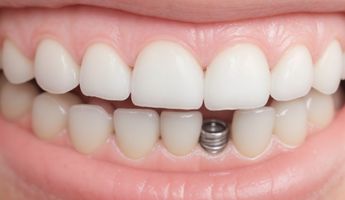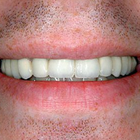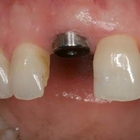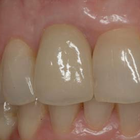Dental Implant in Indonesia
Search and Compare the Best Clinics and Doctors at the Lowest Prices for Dental Implant in Indonesia

Find the best clinics for Dental Implant in Indonesia
With Medijump you can browse 10 facilities offering Dental Implant procedures in Indonesia. The cheapest price available is $800 in Bali. And for the cheapest price globally, prices start from $1 in Vietnam.
Dental Implant in Bali
Price: $ 800
Vietnam offers the best prices Worldwide
Price: $ 1
From 35 verified reviews
PT IndoVest Development, 05 August 2020
Covid Rapid Test. Result in 15min. including certificate. RP. 380.000.--- Thank you so much....
From 99 verified reviews
gra cia, 12 September 2020
the place is large, comfortable to wait for a long time, my consultant, Ms. Wulan, is kind and friendly, listening to the tone of her speech 😁. Thank you so much mba wulan for ur kind, oh yes the puri doctor is friendly too! don't rush in when I want a consul and it's good. can't wait for next week for action at the poise 🥰
From 27 verified reviews
michael hardie, 02 April 2020
Fantastic friendly staff. Never experienced the normal anxiety that I feel when visiting dentist. Plus no pain at all.5 stars
From 10 verified reviews
FNU Willsen, 24 October 2019
Friendly service, clean place
From 108 verified reviews
Cody Macquarie, 22 September 2020
From admitted to discharge was great. Front office staff, nurses, doctors all had wonderful and caring attitudes. Facility is beautiful and clean, I had nothing to complaint about
From 46 verified reviews
sella marsilia, 15 September 2020
Tempatnya bersih, dokternya baik hati dan penyayang, alat2nya lengkap, dari semua dokter yg saya datangi, baru kali ini gigi saya ditangani dgn sgt baik. Krn saya punya masalah gigi yg susah ditangani selama ini. Recomen banget pokoknya! Dan yg terpenting dari semua penanganan yang sangat memuaskan ini..harganya masuk akal!
From 53 verified reviews
Muhammad Reza Ichsan, 02 September 2020
One of the best clinic in Kuta. Offered dental and aesthetic services
From 11 verified reviews
Yorri Farli, 15 August 2018
The service is friendly, doctors and assistants are good and friendly. His work is good and neat. young doctor temperature children renowned photographers. 🙏 Thank you elite dental and aesthetic clinic.
Bali Family Dental Care, located in Denpasar, Bali, Indonesia offers patients Dental Implant procedures among its total of 6 available procedures, across 1 different specialties. The cost of a Dental Implant procedure ranges from Rp12,500,000 to Rp14,500,000, whilst the national average price is approximately Rp60,008,800. All procedures and treatments are undertaken by just a small team of specialists, with 2 in total at the Dental, and they are not accredited by any recognized accreditations institutes
Global Doctor Dental Clinic - Mega Kuningan, located in Kepulauan Seribu, Jakarta, Indonesia offers patients Dental Implant procedures among its total of 47 available procedures, across 9 different specialties. Currently, there's no pricing information for Dental Implant procedures at Global Doctor Dental Clinic - Mega Kuningan, as all prices are available on request only, whilst the national average price is approximately $4,000,587. There are many specialists available at the Dental, with 9 in total, and they are not accredited by any recognized accreditations institutes
- Home
- Indonesia
Compare Before & After Photos of _procedure_photos.phpDental Implant


Front view


Front view


Front view


Front view


Front view
WHY US?
At Medijump, we're making medical easy. You can search, compare, discuss, and book your medical all in one place. We open the door to the best medical providers worldwide, saving you time and energy along the way, and it's all for FREE, no hidden fees, and no price markups guaranteed. So what are you waiting for?

Free

Best Price

Widest Selection

Risk-Free
What you need to know about Dental Implant in Indonesia

A dental implant is a medical device that provide support to artificial teeth. It's surgically placed into the jaw to act as a replacement for the root of a missing or damaged tooth, which in turn serves to hold a replacement tooth or bridge. It functions and looks much like a real tooth, restoring your ability to chew and improves your overall appearance. Dental implant surgery is considered as a better alternative to dentures or bridgework that does not fit well. It also offers a great option for people when they do not have enough natural teeth roots left to build denture or bridgework replacements.
Since dental implants eventually fuse with your jawbone over the span of several months, it won’t make noise, slip, or cause bone damage the way dentures or bridgework might. Dental implants also enable natural speech, look and feel like your own teeth, make eating easier, and improves your appearance. However, the surgery may involve several stages, and, in some cases, it may require two separate visits to the clinic to complete. Ensure to look for a specialist in a reputable clinic for the best results.
What is the cost of Dental Implant in Indonesia?
Price differences abound in Indonesia for Dental Implant based on the clinic, the proficiency of the surgeon, and the individual requirements of the patients. It's essential to realize that dental insurance usually doesn't cover the entire bill for this treatment, though it might cover a part. Several dental clinics provide finance schemes or payment alternatives to assist in easing the financial burden. For more precise cost estimates, reach out to your dental service provider or a nearby clinic.
What does a Dental Implant Procedure Involve?
Dental implant surgery generally requires several stages. Each stage may be performed under general or local anesthetic. The first stage is removing the damaged tooth. Then, if your jawbone is too soft or not thick enough, your dentist may perform bone grafting to create a more solid base for the implant. The bone graft may be natural (taken from another part of your body) or synthetic (a bone-substitute material). If you only need minor bone grafting, the implant surgery can be performed on the same day. However, if you need a significant amount of bone graft, the implant surgery may have to be postponed until the transplanted bone grows enough new bone to support the dental implant.
The next stage after the damaged tooth removal and bone graft (if you need one) is placing the dental implant. To do this, your dentist makes an incision to expose the bone and puts the metal implant post deep into the bone. At this stage, you will still have a gap where your tooth is missing. Your dentist will place a temporary denture for appearance. Once the metal implant post is placed, osseointegration begins. This is a process where the jawbone grows into the surface of the implant and can take several months to complete. After osseointegration is complete, your dentist will place the abutment, which is a small connector post that will hold your new tooth. The final stage, after the abutment is placed, is placing the crown, which is the tooth-looking part. You can choose between a removable crown and a fixed crown.
How Long Should I Stay in Indonesia for a Dental Implant Procedure?
The length of your stay in Indonesia for a Dental Implant depends on numerous considerations like the intricacies of the procedure, the quantity of implants required, and your personal recovery process. Each stage of dental implant surgery is done in separate appointments. After each appointment, you should be able to leave the hospital or clinic right away. However, you should stay in Indonesia for at least 2 weeks for completion of the work, the initial recovery time, and follow-up checkups.
What's the Recovery Time for Dental Implant Procedures?
The recuperation duration following a Dental Implant or dental implant operation can widely vary and is shaped by multiple aspects. Initial healing of the tissue might require only a handful of days, but complete osseointegration (the fusion of the implant with the jawbone) generally spans several months. This window could be extended for patients requiring auxiliary procedures such as bone grafts, or those with prevailing health issues that may impede the healing process.
Post-procedure, it's not unusual to experience a degree of discomfort, which could manifest as minor pain, swelling of your gums and face, skin and gum bruising, and slight bleeding. Such symptoms are a standard phase of the recovery process and should alleviate within a fortnight. In this interim, it's advisable to stick to a soft diet to not overload the implant site with undue pressure. Any strenuous physical exertion should be put off to circumvent potential complications.
Maintaining excellent oral hygiene is paramount to facilitate healing and stave off infection. Regular brushing and flossing, being particularly gentle around the surgical area, coupled with rinsing your oral cavity with warm saline water, can contribute to keeping the region hygienic.
What sort of Aftercare is Required for Dental Implant Procedures?
After each stage of surgery, you may have to eat soft foods. Since you may experience swelling, bruising, pain, and minor bleeding, your dentist will prescribe pain medications or antibiotics to help ease your discomfort. During your recovery period, you need to avoid smoking as it can contribute to implant failure and complications.
No special care is required for dental implants. Nonetheless, you need to practice good oral hygiene in order to maintain the implant and your remaining natural teeth. Make sure to brush your teeth twice a day, floss daily, and rinse your mouth with an antiseptic mouthwash. You also need to see your dentist regularly and avoid damaging habits, such as chewing hard items.
What's the Success Rate of Dental Implant Procedures?
The efficacy of Dental Implant, alternatively referred to as dental implants, in Indonesia, is typically impressive, boasting effectiveness percentages as high as 98% in some studies. This positions dental implants as one of the most reliable procedures within dental care's realm. Nevertheless, it's worth mentioning that the success rates might fluctuate, influenced by several factors.
The patient's overall health is a key determinant of the thriving outcome of a dental implant procedure. Individuals exhibiting optimal health usually witness higher success rates. Pre-existing health issues like diabetes, osteoporosis, and periodontal ailments can theoretically impact the efficacy of the implant.
Additional contributing factors to the success rate encompass the quality and abundance of the individual's bone structure. Patients boasting plentiful, healthy bone are ordinarily the perfect candidates for dental implants. However, those who have experienced bone loss might need to undergo a bone grafting procedure before the implant procedure. This step can provide a robust base for the implant and enhance the chances of a successful result.
Are there Alternatives to Dental Implant Procedures?
If you are not a candidate for dental implant surgery, or you simply do not want to undergo the procedure, you can opt for the alternatives. The alternatives include:
- Mini dental implants, which is a small type of dental implants. The structure is similar to regular dental implants, but are somewhat smaller in size. Unlike regular dental implants, dentists can often place mini implants only in one visit using local anesthesia. You may also be able to use your new teeth on the same day.
- A same-day implant is essentially similar to traditional dental implants. However, your dentist performs the whole process in just one day, skipping the process of wound healing and osseointegration.
- Implant-supported dentures or All-on-4 is an alternative if you need to fix a complete upper or lower set of teeth. During this procedure, four to six implants are placed into your jawbone as a base to attach and stabilize your denture.
What Should You Expect Before and After the Dental Implant Procedure?
Grasping what lies ahead before and post the Dental Implant can lessen potential worries and guarantee you are fully equipped for the upcoming journey. Prior to the procedure, your dental practitioner will conduct an all-inclusive dental assessment. This check-up may encompass dental X-rays and sophisticated 3D imaging to examine the status of your oral cavity.
The dental professional will also explore your medical history. If you're suffering from specific heart disorders or orthopedic implants, your dental practitioner might suggest antibiotics to avert infection. A personalized treatment blueprint, customized to your circumstances, will be constructed. This strategy takes into account factors like the amount of teeth you need substituted and the state of your jawbone. The procedure is typically carried out under local anesthesia to mitigate any discomfort.
Subsequent to the operation, experiencing slight unease is usual. You might witness inflammation of your face and gums, discoloration of your skin and gums, soreness at the insertion area, and insignificant bleeding. Your dental specialist will recommend medications to soothe these indicators. In case inflation, unease, or any other complications intensify in the days post-operation, it's crucial to reach out to your oral surgeon. Post-operation will require you to consume mushy foods as the operated site recovers. Moreover, you'll be guided to abstain from smoking, as it can hinder recovery and influence the triumph of the dental implant.
Following the positioning of the implant, the healing process, and fusion with the bone (osseointegration) transpire over an extended period. During this interval, maintaining robust oral cleanliness is vital. This involves frequent brushing, the use of dental floss, and cleansing with an antibacterial mouthwash. Periodic dental examinations are obligatory to track progress and confirm the well-being and effectiveness of the implant.
What are Potential Risks of Dental Implant?
Despite Dental Implant boasting remarkable effectiveness, it is, as any surgical operation, not without risks and potential difficulties. The chances of encountering these issues are often minute and irregularities are infrequent, yet it remains critical for patients to comprehend these possibilities before undertaking the procedure.
Complications and side effects may include:
- Implant failure
- Nerve injury
- Infection
- Sinus problems
- Damage to surrounding structures, such as other teeth or blood vessels
How long does a Dental Implant last?
The durability of a Dental Implant is heavily reliant on the individual's oral cleanliness and general wellbeing. Nonetheless, with appropriate upkeep and care, dental implants have the potential to stand the test of time. The titanium pillar inserted into the jawbone during surgery is crafted to be everlasting, while the dental cap fastened to the anchor may necessitate substitution every decade or decade and a half due to normal usage. Yet, with outstanding dental management and habitual screenings, the cap has the potential for lifelong endurance.
Whilst the information presented here has been accurately sourced and verified by a medical professional for its accuracy, it is still advised to consult with your doctor before pursuing a medical treatment at one of the listed medical providers
No Time?
Tell us what you're looking for and we'll reachout to the top clinics all at once
Enquire Now

Popular Procedures in Indonesia
Prices Start From $1

Prices Start From $1

Prices Start From $48

Prices Start From $1

Prices Start From $1

Prices Start From $11

Prices Start From $1

Prices Start From $45

Recommended Medical Centers in Indonesia for Dental Implant

- Interpreter services
- Translation service
- Religious facilities
- Medical records transfer
- Medical travel insurance
- Health insurance coordination
- TV in the room
- Safe in the room
- Phone in the room
- Private rooms for patients available

- Interpreter services
- Translation service
- Religious facilities
- Medical records transfer
- Medical travel insurance
- Health insurance coordination
- TV in the room
- Safe in the room
- Phone in the room
- Private rooms for patients available

- Interpreter services
- Translation service
- Religious facilities
- Medical records transfer
- Medical travel insurance
- Health insurance coordination
- TV in the room
- Safe in the room
- Phone in the room
- Private rooms for patients available

- Interpreter services
- Translation service
- Religious facilities
- Medical records transfer
- Medical travel insurance
- Health insurance coordination
- TV in the room
- Safe in the room
- Phone in the room
- Private rooms for patients available

- Interpreter services
- Translation service
- Religious facilities
- Medical records transfer
- Medical travel insurance
- Health insurance coordination
- TV in the room
- Safe in the room
- Phone in the room
- Private rooms for patients available

- Interpreter services
- Translation service
- Religious facilities
- Medical records transfer
- Medical travel insurance
- Health insurance coordination
- TV in the room
- Safe in the room
- Phone in the room
- Private rooms for patients available

- Interpreter services
- Translation service
- Religious facilities
- Medical records transfer
- Medical travel insurance
- Health insurance coordination
- TV in the room
- Safe in the room
- Phone in the room
- Private rooms for patients available

- Interpreter services
- Translation service
- Religious facilities
- Medical records transfer
- Medical travel insurance
- Health insurance coordination
- TV in the room
- Safe in the room
- Phone in the room
- Private rooms for patients available

- Interpreter services
- Translation service
- Religious facilities
- Medical records transfer
- Medical travel insurance
- Health insurance coordination
- TV in the room
- Safe in the room
- Phone in the room
- Private rooms for patients available

- Interpreter services
- Translation service
- Religious facilities
- Medical records transfer
- Medical travel insurance
- Health insurance coordination
- TV in the room
- Safe in the room
- Phone in the room
- Private rooms for patients available
Dental Implant in and around Indonesia
About Indonesia
Indonesia is a country in Southeast Asia, located between the Indian and Pacific oceans. It is the 4th most populous country in the world with over 260 million inhabitants. The country consists of more than 17,000 islands, which makes it the largest island country in the world. It is packed with beaches, volcanoes, tropical jungles, exotic animals, and culture. This wonderful country invites any adventurous traveler to explore its dramatic landscape. Today, Indonesia is also a potential medical tourism destination. Although it is not as popular as its neighboring countries such as Malaysia, Singapore, and Thailand in terms of medical tourism, the country actually houses numerous excellent medical centers. Many of the medical practitioners are well-trained and can communicate in English. The medical centers are equipped with cutting-edge technology and offer a wide range of affordable treatments. Some of the most sought-after treatments are blepharoplasty, liposuction, and breast augmentation.
Popular Parts of Indonesia
From busy metropolises, and sparkling beaches, to tropical rainforests, tourists will be able to find anything they want here.
- Jakarta is the capital of Indonesia. It is the melting pot of Indonesia's many cultures because thousands of people from all over the country live and work here. The city is home to numerous museums, some of which are the biggest in the country, such as the National Museum of Indonesia and the Museum of Modern and Contemporary Art in Nusantara (MACAN). The most famous landmark in the city is the National Monument or Monas which commemorates the Indonesian struggle for independence. The city also has a unique old city known as Kota Tua, where tourists can find many interesting colonial buildings.
- Bali is Indonesia’s main tourist destination which attracts more than 15 million tourists every year. The island is packed with striking beaches, diverse marine life, jungle-covered mountains, lively nightlife, opulent culture, and spiritual energy. Almost every beach on the island is worth visiting, particularly Seminyak, Nusa Dua, Sanur, and Padang Padang Beaches. You can visit the Pura Tanah Lot and witness its scenic beauty or go to Ubud Monkey Forest to watch the monkeys and explore the sacred temples.
- The Special Region of Yogyakarta is the center of Java’s traditions and it is the only region in Indonesia that officially recognizes the monarchy. The region is home to numerous ancient buildings and temples. Visit Borobudur temple in the early morning to watch the sunrise, and watch the sunset from Prambanan or Ratu Boko temples. Tourists who are eager to learn about the region’s past can wander around Taman Sari, a park of palaces, pools, and waterways belonging to the sultan.
- Medan is the largest city on the island of Sumatra and it is a gateway to the western part of Indonesia as well as a busy trading city. The most important attraction in Medan is Lake Toba which is one of the natural wonders of the world. It is a massive crater lake with an island in its center. The island, named Samosir, is almost as big as Singapore. This enormous lake has a depth of 450 meters, making it more like an ocean rather than a lake. The clear lake with picturesque mountains in the background gives an incredible view that will leave anyone in awe.
- Bandung is widely known as Parijs van Java or the Paris of Java because of its resemblance to Paris and European cities. Located on a river basin surrounded by volcanic mountains, it has a significantly cooler temperature than any other part of Indonesia. The city is a weekend gateway for people from the surrounding cities and it is popular for its delightful food, fashionable boutiques, creative arts, and lush green spaces. The city is filled with Art Deco, Neoclassical, and Gothic buildings such as the Savoy Homann Hotel and De Vries Building.
Weather and Climate in Indonesia
Indonesia experiences an entirely tropical climate. The average temperatures can vary based on the area. Coastal areas have an average temperature of 28 °C, the inland and mountain areas have an average of 26 °C, and the higher mountain areas have an average of 23 °C. There are two seasons in the country, but the seasons can start differently in each region. Generally, June to October is the dry season and November to March is the rainy season. The dry season is influenced by the Australian continental air masses and has a slightly cooler temperature than the rainy season. Tourists can expect mostly sunny days, but there will be some short rain showers. The rainy season can be very humid, and wet, and has a significant amount of rain.
Getting Around in Indonesia
Indonesia is well-connected by airports in almost every region. However, the largest airports are Soekarno-Hatta International Airport in Jakarta and Ngurah Rai International Airport in Bali. Both airports serve domestic and international flights to major cities around the globe. There are budget airlines in almost every airport, including Air Asia, Citilink, and Wings Air. Domestic flights can be rather expensive but will make traveling around the cities a lot easier.
Getting around the islands of Java and Sumatra can easily be done by trains operated by PT. KAI. There are 5 classes of trains: economy, business, executive, priority, and sleeper. The economy class can be a little uncomfortable and crowded, but tourists can get around several cities for as low as $4. Since the country is an archipelago, tourists can also travel from one island to another by ferry boats (long-distance) and speed boats (short distances such as Bali to Lombok).
Most of the cities will have their own mode of transport. The most common mode of transport is taxis and buses. Taxis are normally metered, but some drivers refuse to use the meter and force tourists to pay a fixed fare. Tourists should avoid riding these kinds of taxis and always insist on using the meter. The most reliable taxi companies are Blue Bird and Express. Bigger cities like Jakarta have MRT, LRT, and KRL (local trains).
Tourist Visas in Indonesia
Citizens of 170 jurisdictions can visit and stay in Indonesia for up to 30 days. Visa on arrival is available for 68 countries including Japan, the United Kingdom, and the United States. Nationals not listed in the visa exception agreement and visa on arrival need to obtain a visa before entering the country. It is advisable to check at your nearest Indonesia Embassy or Consulate for the visa policy. All visitors will need to have a passport valid for at least 6 months and a valid return ticket.
Additional Information
- Local Currency: The local currency is Indonesian Rupiah (Rp) and $1 will get you approximately Rp14.000.
- Money & Payments: ATMs that accept international cards are widely available in many cities. Credit cards are accepted in most established restaurants and hotels. If you are planning to visit small towns, it is advisable to carry some cash. Tipping is not essential but will be highly appreciated.
- Local Language: The official language is Bahasa Indonesia and people in major cities and tourist areas will speak and understand English.
- Local Culture and Religion: Most of the population follows Islam, but there are small groups of Hindus, Christians, Buddhists, and Confucianism. It is important to know that Indonesian people are friendly and conservative. Avoid wearing revealing clothes except on the beach.
- Public Holidays: Indonesia celebrates numerous national and religious holidays such as Independence Day, Eid Mubarak, Christmas, Vesak, and Nyepi.
Popular Searches
- Plastic Surgery in Thailand
- Dental Implants in Thailand
- Hair Transplant in Thailand
- Breast Augmentation Thailand
- Gastric Sleeve in Thailand
- Gender Reassignment Surgery in Thailand
- Laser Hair Removal in Bangkok
- Botox in Bangkok
- Dermatology in Bangkok
- Breast Augmentation in Bangkok
- Coolsculpting in Bangkok
- Veneers in Turkey
- Hair Transplant in Turkey
- Rhinoplasty in Turkey
- Stem Cell Therapy in Mexico
- Rhinoplasty in Mexico
- Liposuction in Mexico
- Coolsculpting in Tijuana
- Rhinoplasty in Korea
- Scar Removal in Korea
- Gastric Sleeve in Turkey
- Bone Marrow Transplant in India
- Invisalign in Malaysia
- Plastic Surgery in the Dominican Republic
- Tummy Tuck in the Dominican Republic
- Plastic and Cosmetic Surgery in Poland
- Rhinoplasty in Poland
- Hair Implant in Poland
- Dental Implants in Poland
- IVF in Turkey









